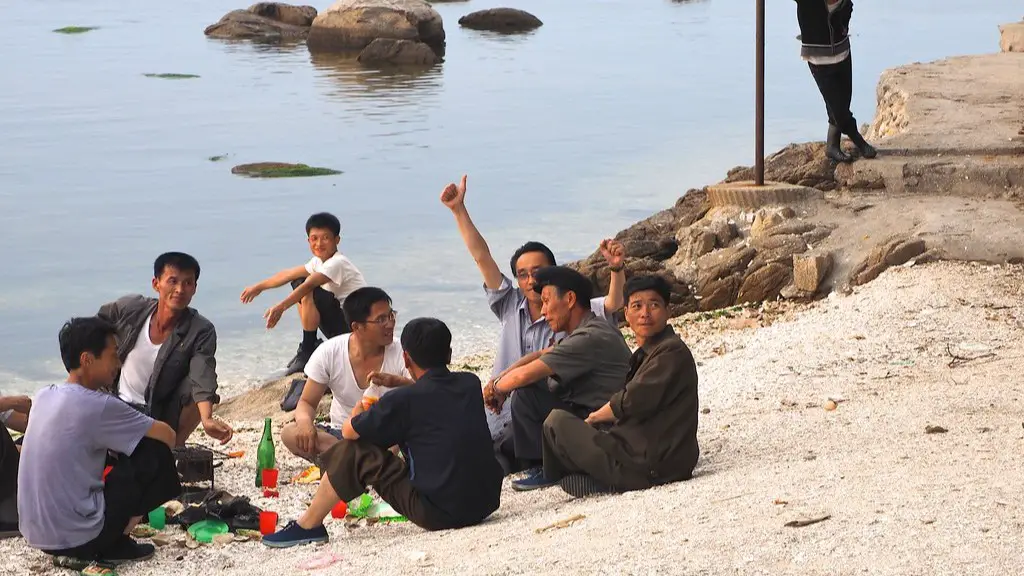Social Perspective
North Korea’s regime and its social infrastructure has created an environment of extreme secrecy and censorship. It restricts citizens’ freedoms and limits access to information in an environment of oppressive rule. It is no surprise then that North Korea was ranked the least free country in the world by Reporters Without Borders in 2020. This contributes to the lack of awareness and education that North Koreans have about the sanctions and their place in the global community. Even those who get their information from foreign sources often find themselves confused and unable to understand the full extent of why their country is sanctioned.
The effects of these sanctions have been devastating for ordinary North Koreans. The International Red Cross estimates that over 10 million people are living in extreme poverty, and the World Food Program has expressed fears that food security levels have declined dramatically. Many staple immunizations such as polio, measles and tetanus have declined at shocking levels, meaning more citizens are subject to preventable diseases. These sanctions can also often lead to a breakdown in international health protocols, which can mean a rise in infections and other diseases.
Economic Perspective
North Korea’s economy is heavily reliant on external trade and the sanctions have had a dramatic impact on the country’s economic well-being. According to the IMF, the sanctions led to a 7% reduction in export earnings and a 7.5% decline in gross domestic product in 2017 alone. The country has been hit hard by restrictions on imports and exports, with the UN Security Council’s 2016 resolution banning all coal, iron ore and seafood exports from the country.
The US-led sanctions have also had a dramatic impact on North Korea’s job market. According to a report by the International Crisis Group, many North Koreans are unable to find actual employment due to the stringent measures which often restrict access to international networks. This has led to many citizens turning to informal activities such as smuggling or other black market activities just to be able to make ends meet.
Political Perspective
It is widely accepted in the international community that the North Korean regime is just as responsible for the sanctions as the countries imposing them. North Korea’s possession and testing of nuclear weapons, as well as its dismal human rights record, has led to widespread condemnation, and subsequently sanctions, from the international community.
In order to counter these sanctions, the country has resorted to some of the most extreme tactics in modern history, from international cyber attacks to money laundering. This has further highlighted to the world the despotic, oppressive regime which runs the country, leading to even more criticism, and more sanctions.
Military Perspective
The sanctions imposed on North Korea have had a dramatic affect on the country’s military capabilities. The UN Security Council has imposed restrictions on the import of arms and military equipment, as well as on the export of military-related items from the country. As part of the sanctions packages, there have been bans on the export and transfer of weapons-grade nuclear material and plutonium. This has had a significant impact on North Korea’s military capabilities, as the country had been reliant on imports for much of its military technology.
The country has also been hit hard by restrictions on scientific and technical cooperation which have hampered North Korea’s ability to develop advanced technologies. This has had a wide-reaching impact on the country’s missile and weapons program, as well as its space exploration ambitions.
International Perspective
The sanctions imposed by the international community on North Korea have been described as the toughest in history. Since 2015, the United Nations Security Council has imposed a series of resolutions which target North Korea’s nuclear and ballistic missile programs, as well as its human rights record. These have included bans on imports of luxury goods and an embargo on arms and military-related materials. The US, in particular, has implemented its own set of sanctions in addition to the United Nations Security Council’s, targeting not only North Korean individuals and entities, but also any foreign companies or individuals doing business with North Korea.
These sanctions have had a devastating effect on international relations, and it has become increasingly difficult for countries to maintain diplomatic ties with North Korea. This has been highlighted most notably by South Korea’s decision to suspend some commercial operations with the North, as well as the withdrawal of ambassadors from Switzerland, Sweden and India.
Legal Perspective
The sanctions imposed on North Korea have raised some concerns in the international legal community, with many experts questioning the legality of the measures put in place by the international community. The UN’s Charter on International Law states that measures taken by a UN body are binding and must be respected by all parties. However, some experts have argued that the North Korean sanctions may violate the charter, as they limit the freedom of North Koreans to purchase and sell goods and services on the international market.
In addition, the legal validity of US sanctions has also been called into question by some. According to a recent article in the Harvard International Law Journal, US unilateral sanctions are not a valid exercise of US authority under international law, as the US does not have the power to impose its will on other countries.
Cultural Perspective
The sanctions imposed on North Korea have had a dramatic effect on the country’s culture and society. According to a report by Amnesty International, North Koreans are becoming increasingly isolated due to restrictions on the movement of people, goods and services. This has led to an increase in poverty, as well as an erosion of North Korean cultural practices.
In addition, North Koreans have also been restricted from traveling abroad, while foreign visitors to North Korea have been heavily restricted. This has diminished the country’s ability to engage with the international community, leading to a decrease in cultural exchange and understanding between North Korea and other nations.
Political Impact
The sanctions imposed on North Korea have had a major political impact, both domestically and internationally. Internationally, the sanctions have further distanced North Korea from the international community, leading to a breakdown in bilateral relations and diplomatic ties between North Korea and other countries. This has led to increased tensions between North Korea and its neighbours, as well as with the United States. Domestically, the sanctions have had a devastating effect on the economy, leading to soaring inflation and rising unemployment. The restrictions on imports and exports, as well as the ban on luxury goods, have had a major impact on the quality of life of ordinary citizens.
The effects of these sanctions have also been felt in terms of political freedoms and human rights. The sanctions have further restricted the already limited access of North Koreans to information, as well as their freedoms of expression and assembly. The restrictions on international travel have also led to an erosion of cultural practices and traditions in the country.
Environmental Impact
The sanctions imposed on North Korea have had not only a political and economic impact, but also an environmental one. The sanctions have had a dramatic effect on the country’s forests and wildlife, as the restrictions on timber exports have meant that many of the country’s forests have been decimated. This has had an impact not only on the environment, but also on the livelihoods of many rural North Koreans who rely on the forests for their sustenance and income.
In addition, the sanctions have had a drastic impact on wildlife, as the restrictions on imports and exports have made it difficult for North Korean citizens to trade in wildlife products, leading to a decrease in wildlife populations and an increase in illegal poaching and hunting. This has had a disastrous effect on the environment and has further contributed to the deterioration of North Korea’s already fragile ecosystems.


